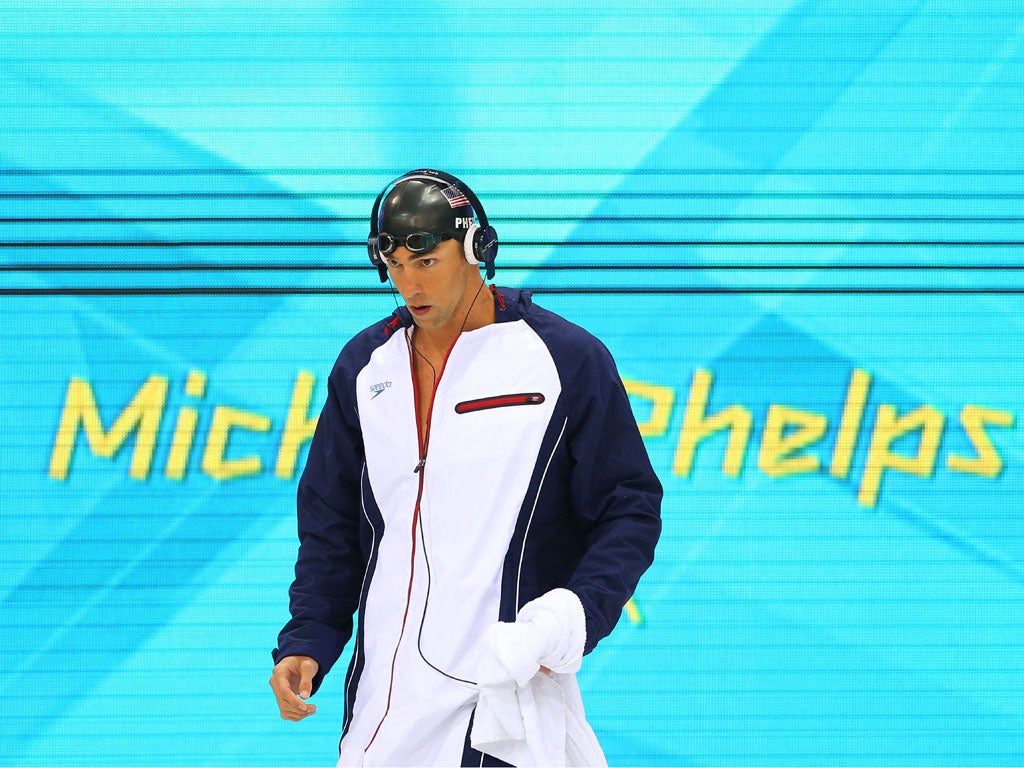And the crowd roars...but can the Olympic athletes hear it?
Music players have become so ubiquitous that those not wearing earphones now tend to be in the minority

Your support helps us to tell the story
From reproductive rights to climate change to Big Tech, The Independent is on the ground when the story is developing. Whether it's investigating the financials of Elon Musk's pro-Trump PAC or producing our latest documentary, 'The A Word', which shines a light on the American women fighting for reproductive rights, we know how important it is to parse out the facts from the messaging.
At such a critical moment in US history, we need reporters on the ground. Your donation allows us to keep sending journalists to speak to both sides of the story.
The Independent is trusted by Americans across the entire political spectrum. And unlike many other quality news outlets, we choose not to lock Americans out of our reporting and analysis with paywalls. We believe quality journalism should be available to everyone, paid for by those who can afford it.
Your support makes all the difference.The increasing use of headphones by Olympic athletes to drown out the sound of cheering crowds as they prepare for their races has been criticised by those who believe they are ignoring their fans.
Music players have become so ubiquitous that those not wearing earphones now tend to be in the minority – especially among the swimmers who have walked into the aquatics centre sporting a vast array of headgear.
British swimmer Ellen Gandy was one of the few athletes who removed her headphones to soak up the thunderous applause from the gathered crowd. But many more barely acknowledged their fans. One relay swimmer was even spotted standing on the starting blocks with a pair of earphones as his team mate swam the opening leg.
Many of those watching from home expressed surprise that so few athletes chose to recognise fans who have paid hundreds of pounds to see them in action.
“Is it me or does it seem a bit rude when a swimmer walks out wearing headphones?” asked Alun Davies, a web consultant, on Twitter. “You can take them off for five minutes.”
Philippa Perry, author and wife of British artist Grayson Perry, was equally unimpressed. “Those headphones the swimmers wear when they come out: at best toss potty, at worst rude,” she said. “Or maybe they didn’t have a 20p for the lockers.”
Dave Richards, a spokesperson for Team GB’s swimming team, said athletes had a right to prepare for their races in any way that gets them into the right mind set. “It’s all about personal preference,” he said. “All the athletes have their own way of getting into the zone before a race. Some prefer to listen to music so they can block out the noise of the crowd, others feed off the audience. But either way it’s their choice.”
Athletes have used headphones for many years but the recent fashion craze for large and colourful over-ear “cans” means they are much more visible than they used to be. Many competitors have come out wearing pairs emblazoned with their national flags, or encrusted in jewellery.
Anger over the increasing use of headphones is not just confined to the Olympics. Among professional footballers huge cans are now as common as bling and wags. Two years ago, the chairman of French team Stade Brest became so fed up of his players’ love affair with headphones that he banned them from wearing them during any official clubs duties.
Former England captain Paul Ince has also decried the trend. “You see players coming off the buses with earphones around their ears,” he said in an interview last year. “Whatever happened to the art of conversation?”
When the Brazilian football team flew into Heathrow today a huge crowd of fans had gathered to greet them. But most of them wore headphones and walked straight ahead.
At the aquatics centre today afternoon, however, few spectators had any issue with the use of headphones. “Why shouldn’t they wear them?” asked Mari Fotherby, who had travelled from Cirencester to watch the second day of swimming. “They train hard 364 days of the year. If they want to use music to stay calm as they get ready to race then they should.”
Gerry Williams and his wife Diane flew in from Quebec to watch their son Charles Francis compete in the men’s 100m backstroke. “He’s been training for the last six years,” said Mr Williams, beaming because his son had just qualified for the semi-final. “This is his day. Listening to music helps him stay in the zone.”
His sister Dominique, who is also a professional swimmer, added: “I always listen to music. It’s so important to stay in your bubble.”
Kim Entrop, from The Hague, was also at the aquatics centre to watch her boyfriend Nick Dreibergen compete in the 100 backstroke. “He likes to listen to Dutch rap before racing,” she said. “Normally he comes out with headphones on but his pair got broken.” Asked whether she thought the lack of music might affect his performance, she laughed: “If it did he would have bought another pair. Instead he just swam his personal best.”
Join our commenting forum
Join thought-provoking conversations, follow other Independent readers and see their replies
0Comments